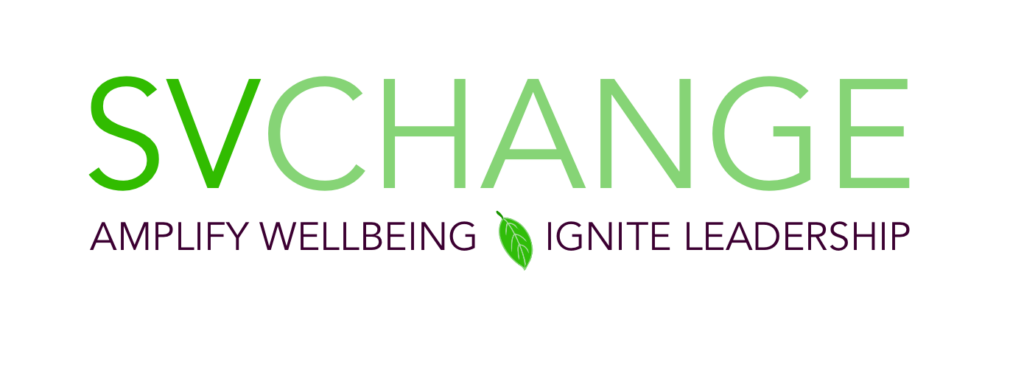By now, it’s a tired refrain: Women, particularly women of color, are significantly outnumbered at the senior leadership level in organizations.
The causes of the leadership gender gap are numerous, as are its proposed solutions.
One area of research points to differences concerning women’s response to “office politics.” Politics, broadly defined as being able to successfully navigate the unwritten rules of “how things get done and through whom,” includes understanding the motivations of others at work and using this knowledge to influence in ways that enhance one’s personal interest and organizational objectives.
In our experience as psychologists and coaches, we have found that many women have an adverse, almost allergic reaction, to office politics.
Numerous studies confirm this; women tend to see it as something “dirty” or dishonest, and as a stressful aspect of work that reduces their job satisfaction.
And yet, by nature, humans are relational beings and political skill matters. It is a necessary part of organizational life. Studies affirm that being able to successfully use political skills is critical to career advancement.
We recognize that engaging in office politics can be stressful. It often forces people to stretch beyond their natural preferences and patterns. We aim to offer ways to participate in politics that reduces discomfort and maximizes career advancement.
This article identifies some commonly held beliefs underlying women’s aversion to being political at work. Next, it offers mindset shifts that have helped hundreds of women use political skills to their advantage.
5 Reasons Women Dislike Office Politics
1. My work should speak for itself.
Being political contradicts many people’s belief in meritocracy.
The notion that one has to do more than excel at work itself is seen as anathema to men and women alike. However, for women and other marginalized groups who have to work twice as hard to counter the bias related to their gender and race, this can be experienced as an even greater insult and burden.
2. Building connections is an extracurricular activity.
Cultivating political relationships often feels extraneous and distracting from the work, like just another item on a to-do list.
And for women, who spend, on average, 37% more time than men on housework and chores in addition to their full-time jobs, the idea that they have to find more space and time for these additional activities feels unreasonable.
3. It’s inauthentic.
Politics is often seen as posturing, making alliances with those who have clout or supporting initiatives that are popular simply for the sake of staying close to the power source. To many, this can feel inauthentic and, at times, duplicitous.
4. I don’t like playing hardball.
Office politics often plays out as a “zero-sum game,” involving gossip, backstabbing, sabotaging, and even intimidation.
Women, and a fair number of men, have an aversion to these tactics, and prefer power that is based on influence, relationships, and win-win approaches.
5. The penalties are too great.
Women are penalized for displaying political skill. Studies show that women are judged more harshly for being assertive or competitive, two common characteristics of office politics. And, consequently, they are penalized for it.
Do you hold any of these beliefs? If so, it’s understandable. There’s validity to them.
And yet, if you don’t challenge them, you may be limiting your potential. In our work, we have found that cultivating the following five mindsets is an effective way to help counter these beliefs and embrace and develop political skills.
5 Ways to Shift Your Mindset Around “Playing Politics”
1. From “My work should speak for itself” to “It’s my responsibility to show people how my work connects to theirs.”
No one is an island. When people, male or female, believe their work should speak for itself, they fail to recognize the interdependence of organizational life. Believing your work should speak for itself is a narrow, functional view of a job, one that assumes others can fully appreciate and comprehend the part you play in the larger organizational puzzle.
We typically see this belief in two groups. The first is from very technical leaders — those with a highly valued, specialized area of expertise. It’s easy for these individuals to see how the organization depends on what they provide, but it’s less obvious to them how their work depends on others.
We also have heard this response from those who are more comfortable with a hierarchical style of leadership and who have a more deferential relationship to management. They question the necessity of advocating for themselves, seeing it as the task of their manager to see and evaluate their performance.
When we work with people on making a shift away from this mindset, we focus on transitioning from a functional or expert mindset to an enterprise one, one that enables people to connect their area of expertise to the larger business needs. In other words, to think in terms of what’s best for the whole organization, not just their small part of it.
One of us coached a senior executive who rose rapidly through the ranks from director to vice president in a very technical, male-dominated field. She navigated the politics in her rise to the top by learning how to connect her work to others’ work. Before every conversation, every meeting, and every presentation, she would take five minutes to anticipate the possible blow-back or resistance she could incur.
She took a careful inventory of her audience, considering who they were, what their needs were, and the priorities they were facing. She would then consider ways to connect her contributions to their needs, positioning herself as a necessary and intrinsic part of everyone else’s success. By carefully tying her work to others and to the organization’s goals, she tied her success to the success of others, thereby ensuring that they saw the value in what she had to offer.
2. From “Building connections is an extracurricular activity” to “Building connections is a force multiplier.”
Work gets done with and through people. And the higher up you go, the more this is true. In the interdependent world of work, where you need others to help you accomplish your goals, continuously nurturing relationships and learning from others is key to your success.
For example, attending a women’s conference can double a woman’s likelihood of receiving a promotion within a year, triple the likelihood of a 10%+ pay increase within a year, and increase her sense of optimism by up to 78%, immediately. Something powerful happens when people engage with others.
People are more inspired. They learn new strategies for career advancement. They are exposed to new ideas. They build confidence in asking for what they need and maybe even find a way to share their wisdom with others.
When we work with leaders on making a shift away from this mindset, we help them see the benefits, not just the burden, of making connections.
We host six-month leadership development programs within organizations where participants have the opportunity to meet, repeatedly, as cohorts. Women who are seeking new opportunities, stuck in their career trajectory, or those struggling with leadership tensions find it productive to hear from others in similar positions, to learn new approaches for promoting themselves, and to see alternatives for managing their challenges.
In the final session, participants give a five-minute presentation on a topic that has big career implications after rehearsing and revising their presentations in small groups. These dress-rehearsals give people the opportunity to hone their stories, more clearly articulate their facts, and bolster their stage presence for maximum effectiveness.
Countless participants credit the feedback from their new network with helping them adjust and sharpen their presentations to the point that they ultimately land funding, drive new strategy and galvanize followers. In several instances, the women also helped each other find new roles, transition into different departments, and gain access into new and influential networks. In other words, the relationships built in the program and the perspectives gathered from those relationships help our participants amplify their impact.
3. From “It’s inauthentic” to “I’m being paid to have a point of view and share it.”
The research on authenticity shows that it requires two things: conscious awareness (knowing who you are, your motives, and what you’re bringing to the current situation) and expression (consciously aligning your behavior with your awareness). It means acting in accordance with your true feelings, thoughts, and highest intentions in a way that serves the context. Authenticity requires discernment, courage, and self-determination. It’s not a reaction to what’s happening around you; it’s relating to the players and situation from a grounded sense of who you are.
You’re more negatively affected by office politics if you don’t know what you stand for or don’t have the courage to advocate for it. To be political — and authentic — you must know what your values and intentions are so that you can move projects and teams forward in a way that aligns with you and the organization’s goals.
In some ways, it’s easier for people to be against politics than it is to get clear on what they stand for and champion it.
When we work with people on making a shift away from this mindset, we help them discern their purpose and values so they can make choices in alignment with them.
One of us coached a woman who was discouraged by the leadership behavior of the senior leaders in her business unit. As a result, rather than seeking promotion to the next level, she was considering quitting. Through coaching, she realized that her decision was a reaction to her colleagues’ behavior; yet, she hadn’t defined the leadership behavior she valued.
By helping her clarify her own leadership point of view, she felt inspired to model new behaviors and open up conversations inside her business unit about the role leaders play in creating the culture. This changed her attitude towards her current job, and she felt more inspired and motivated to stay in the role, and even apply for a promotion.
Rather than reacting to what she disliked, she made a conscious decision to be a role model for the leadership behavior she wanted to see present in her organization.
4. From “I’m not someone who plays hardball” to “My leadership tactic needs to match the situation.”
Political behavior can be a turn-off, especially when it involves hard power tactics: coercion, intimidation, and sabotage. For many people, men and women alike, this is what “being political” means, as opposed to using softer power tactics of persuasion, building alliances, and offering assistance.
Yet, power, hard or soft, is neither good nor bad. What makes the use of power good or bad is the motivation behind its use and the impact it has on others. While it’s easy to see the negative applications of hard power, soft power can also be misused, or used to villainous ends. Consider how Bernie Madoff, Jeffrey Skilling, and Jim Jones employed persuasion, charisma, and relationship-building.
When we work with leaders on making a shift away from this mindset, we help them understand that their application of hard or soft power tactics should be situational, not a matter of preference or style. Some situations call for hard power and some for soft power. Specifically, hard power tactics may be needed to hold people accountable, make tough and unpopular decisions, set boundaries, or enact consequences to inappropriate workplace behavior.
One of us coached a leader who had a decided preference for soft power tactics. She worked in a creative industry in which her collaborative style worked well at first. But within a few months of her leading a new team, team members began to complain about burnout. Shortly thereafter, a few senior team members quit due to conflict. This led her to look at the dynamics on the team and how her leadership was a factor.
Through discussions with each team member, she realized that her collaborative approach had resulted in team meetings being dominated and derailed by a few vocal members. Agendas were often hijacked by tangential discussions and meetings often ended without clarity and direction, forcing people to spend hours in discussion to recap and rehash the outcomes.
Our client learned to incorporate hard power tactics to match the team dynamic. She began to intervene, set boundaries, create rules for conversation, and hold people accountable if they failed to follow the meeting guidelines. It was a revelation to her to realize that collaborative leadership had its limits, and that harder power tactics can also have a place.
5. From “The penalties are too great” to “I prioritize my growth.”
Women are penalized for being ambitious and displaying political skill. The research is clear: Negative stereotypes have negative consequences for one’s career. It’s true that women and minorities pay a steep price for displaying ambition.
And yet, for many, the alternative may be worse. While the blowback to displaying ambition is tough, so too is the personal and psychological toll of not striving to fulfill your potential and not stretching to reach your goals. For many women and minorities, waiting for the world to change before they can assert themselves is a steeper price to pay than the backlash of being ambitious.
The mindset here is one of prioritizing growth. But this shouldn’t be done naively.
It’s important to be prepared and to consider the consequences you may face. You may need to gather resources and allies, and ensure you have the support in your personal and professional life before undertaking any action. And above all, it’s important to have a Plan B, or even a Plan C in place.
Consider, realistically, the penalties you may face. Do you have alternatives in mind if things don’t work out as planned? Are you prepared to switch business units or even companies if necessary?
A growth mindset (the belief that talents can be developed through hard work, good strategies, and input from others) is protective against negative stereotypes. For example, one study found that when Black university students were taught to have a growth mindset, they were less likely to internalize the negative stereotype directed at them, and thus, had better outcomes in their studies.
On the other hand, students with a fixed mindset, seeing themselves as unable to change, were more prone to suffer the effects of the negative stereotyping.
One of us coached a woman who described her manager as someone who stifled her ambition, denied her access to senior leaders, and routinely took credit for her work. She felt pushed out by her manager with no option but to leave the firm. Through coaching she realized that she had, in fact, mastered her role.
There wasn’t room to learn new skills, create more impact or meet new stakeholders. Her lack of opportunity had as much to do with her role’s limited scope as it had to do with her disparaging manager.
By recognizing her need for growth, she decided to intentionally seek a new role with more scope and impact potential outside her firm. Rather than feeling “chased out,” she realized her old position was more limiting than her leader. This mindset shift made her the hero of the story instead of the victim.
The harsh reality is that women and racialized minorities face discrimination, negative stereotypes, and hostility. But there are choices to be made, choices which provide more flexibility and resilience, or less.
Preparing yourself, gathering allies and resources, having a Plan B in place, and developing a growth mindset that frames the challenge as an opportunity to learn and grow, can be powerful protection for the backlash you may face.
Office politics impact your work experience and your projects, whether you participate in them or not. We advocate it’s better to be a player than a pawn.
The women we coach want to be leading at the highest levels, and yet many have not examined their limiting beliefs about using political skills to advance their careers. The mindset you bring to any situation, especially one that can be experienced as negative and aversive, is critical to your success.
As a reader, did you notice yourself agreeing with any of the beliefs outlined above? If so, can you see a way to shift your mindset that gives you more power over your experience and possibilities in your career?
Office politics matters because as relational beings, getting ahead is as much about people and relationships as it is about skills and experience. Your ability to participate in politics, and to employ your political skills is not just critical to career advancement, but equally important for your well-being at work.










